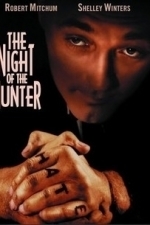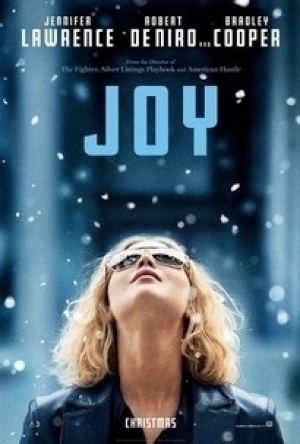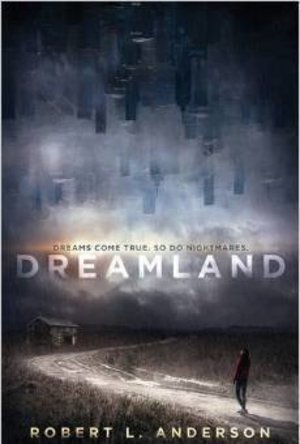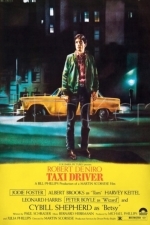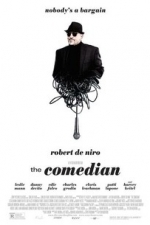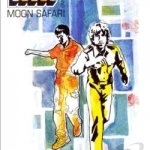Search
Search results
William Friedkin recommended The Night of the Hunter (1955) in Movies (curated)
Hazel (1853 KP) rated The Second Love of My Life in Books
Dec 17, 2018
<i>This ARC was provided by the publisher via NetGalley in exchange for an honest review </i>
Victoria Walters’ debut novel, <i>The Second Love of My Life</i>, is a must read for fans of women’s fiction. Set in a coastal village in Cornwall, Walters explores themes of love, grief and survival in this satisfying narrative.
Rose Walker was once known in her small village for being an up-and-coming artist, however now she is branded as the woman who was widowed at twenty four. The story begins two years after the tragic event involving a car collision between her husband, Lucas, and a drunk driver. Since then Rose has wallowed in her grief and not picked up a paintbrush; therefore the upcoming village fair will be the last time she ever sells her paintings.
A stranger, Robert Green, shocks both Rose and the community by purchasing all of her remaining artwork for an extortionate amount of money. Intrigued by this mysterious man, Rose begins to creep back out of her shell, exploring feelings she has not felt for quite some time. However, just as she believes she cold fall in love again, Robert reveals he is not the man she thought he was.
In a way there are two focuses of this novel. One is Rose’s love life and the other is her artwork. The former is obvious from the title alone. “<i>The Second Love of My Life</i>” suggests that the protagonist has been in love before, and falls in love again. There was a danger of this story becoming predictable: girl is heartbroken, girl meets man, girl falls in love, something bad happens, bad thing is resolved; however the inclusion of Rose’s (former) passion for art gives the book a unique streak.
Many artists will be able to relate to (even if they have never been brokenhearted) the feeling of being unable to produce work – a mental block. <i>The Second Love of My Life</i> reveals the trials Rose goes through in order to get her life back together by forcing herself through the barriers her mind has created in order to deal with her deeper emotions. Although it was Robert that inspired Rose to begin painting again, she does this mostly by herself, showing the reader that she is a strong, capable woman who does not need a man to save her – getting the man is an added bonus.
Whether because this is a first novel, or whether it is Walters’ writing style, there are times when it is difficult to tell what is speech and what is the main character’s internal monologue. Occasionally I found myself wondering whether the lack of speech marks was an editing error or intentional.
<i>The Second Love of My Life</i> has been likened to the works of Cecelia Ahern (author of <i>P.S. I Love You</i>), which is admittedly the reason I chose to read it. Whilst Walters’ writing is not quite up there with the popular authors, there is no doubt that one-day she will be. This is an impressive debut and definitely an author to look out for.
Victoria Walters’ debut novel, <i>The Second Love of My Life</i>, is a must read for fans of women’s fiction. Set in a coastal village in Cornwall, Walters explores themes of love, grief and survival in this satisfying narrative.
Rose Walker was once known in her small village for being an up-and-coming artist, however now she is branded as the woman who was widowed at twenty four. The story begins two years after the tragic event involving a car collision between her husband, Lucas, and a drunk driver. Since then Rose has wallowed in her grief and not picked up a paintbrush; therefore the upcoming village fair will be the last time she ever sells her paintings.
A stranger, Robert Green, shocks both Rose and the community by purchasing all of her remaining artwork for an extortionate amount of money. Intrigued by this mysterious man, Rose begins to creep back out of her shell, exploring feelings she has not felt for quite some time. However, just as she believes she cold fall in love again, Robert reveals he is not the man she thought he was.
In a way there are two focuses of this novel. One is Rose’s love life and the other is her artwork. The former is obvious from the title alone. “<i>The Second Love of My Life</i>” suggests that the protagonist has been in love before, and falls in love again. There was a danger of this story becoming predictable: girl is heartbroken, girl meets man, girl falls in love, something bad happens, bad thing is resolved; however the inclusion of Rose’s (former) passion for art gives the book a unique streak.
Many artists will be able to relate to (even if they have never been brokenhearted) the feeling of being unable to produce work – a mental block. <i>The Second Love of My Life</i> reveals the trials Rose goes through in order to get her life back together by forcing herself through the barriers her mind has created in order to deal with her deeper emotions. Although it was Robert that inspired Rose to begin painting again, she does this mostly by herself, showing the reader that she is a strong, capable woman who does not need a man to save her – getting the man is an added bonus.
Whether because this is a first novel, or whether it is Walters’ writing style, there are times when it is difficult to tell what is speech and what is the main character’s internal monologue. Occasionally I found myself wondering whether the lack of speech marks was an editing error or intentional.
<i>The Second Love of My Life</i> has been likened to the works of Cecelia Ahern (author of <i>P.S. I Love You</i>), which is admittedly the reason I chose to read it. Whilst Walters’ writing is not quite up there with the popular authors, there is no doubt that one-day she will be. This is an impressive debut and definitely an author to look out for.
Gareth von Kallenbach (980 KP) rated Joy (2015) in Movies
Aug 6, 2019
Jennifer Lawrence (Joy), Robert De Niro (Rudy, Joy’s father),
Bradley Cooper (Neil Walker, Joy’s eventual boss), Edgar Ramirez (Tony,
Joy’s ex-husband), Isabella Rossellini (Trudy, Rudy’s girlfriend), Diane
Ladd (Mimi, Joy’s grandmother), Virginia Madsen (Terry, Joys mother),
and Elisabeth Röhm (Peggy, Joys half-sister)
Also making appearances that were notable to me were Susan Lucci as
Danica, a character seen on the TV soap opera that Joys mother Terry is
constantly watching, and Melissa Rivers, playing her mother Joan Rivers
on the TV channel QVC.
David O. Russel wrote, directed and produced the film, bringing the
headliners back for yet another go ‘round, after the successes of Silver
Linings Playbook and American Hustle.
Joy is a divorced mother of 2, living in a house with her Grandmother
Mimi, who she adores, her mother, who practically never leaves her room,
her 2 kids, and her ex-husband in the basement. Shortly after the film
begins, her father Rudy also moves into the basement.
Joy struggles through her life every day, never quite able to get ahead,
and always just barely making ends meet. Her grandmother has big dreams
for her and insists that Joy will “rise above” and “make something” of
her life, but Joy struggles to have faith, and indeed, to even begin to
figure out how to go about such a seeming monumental task.
The story follows Joy and her family through somewhat ridiculous
scenarios, and while it was acted well by Jennifer Lawrence, De Niro,
and most of the rest of the cast, I had a hard time really getting into
the film.
I kept finding myself wondering why Joys family wasn’t more supportive
and why they all, with the exception of her Mimi and her ex-husband,
seemed to be more trying to bring her down and keep her down, than
giving her a boost and a push up. I always have liked Robert De Niro,
but in this film found myself seriously disliking him. I suppose that
speaks to his ability as an actor and being able to portray a role in
which he is “supposed to be” less than 100% likeable.
Jennifer Lawrence as Joy shows tenaciousness, grit and a will to succeed
and “rise above”, at least once she gets to the point in the film where
she has “HAD ENOUGH” of being walked on and disregarded, and plays the
part wonderfully.
I kept hoping to like the movie better, but sadly, also kept waiting for
it to GET better.
Bradley Cooper (Neil Walker, Joy’s eventual boss), Edgar Ramirez (Tony,
Joy’s ex-husband), Isabella Rossellini (Trudy, Rudy’s girlfriend), Diane
Ladd (Mimi, Joy’s grandmother), Virginia Madsen (Terry, Joys mother),
and Elisabeth Röhm (Peggy, Joys half-sister)
Also making appearances that were notable to me were Susan Lucci as
Danica, a character seen on the TV soap opera that Joys mother Terry is
constantly watching, and Melissa Rivers, playing her mother Joan Rivers
on the TV channel QVC.
David O. Russel wrote, directed and produced the film, bringing the
headliners back for yet another go ‘round, after the successes of Silver
Linings Playbook and American Hustle.
Joy is a divorced mother of 2, living in a house with her Grandmother
Mimi, who she adores, her mother, who practically never leaves her room,
her 2 kids, and her ex-husband in the basement. Shortly after the film
begins, her father Rudy also moves into the basement.
Joy struggles through her life every day, never quite able to get ahead,
and always just barely making ends meet. Her grandmother has big dreams
for her and insists that Joy will “rise above” and “make something” of
her life, but Joy struggles to have faith, and indeed, to even begin to
figure out how to go about such a seeming monumental task.
The story follows Joy and her family through somewhat ridiculous
scenarios, and while it was acted well by Jennifer Lawrence, De Niro,
and most of the rest of the cast, I had a hard time really getting into
the film.
I kept finding myself wondering why Joys family wasn’t more supportive
and why they all, with the exception of her Mimi and her ex-husband,
seemed to be more trying to bring her down and keep her down, than
giving her a boost and a push up. I always have liked Robert De Niro,
but in this film found myself seriously disliking him. I suppose that
speaks to his ability as an actor and being able to portray a role in
which he is “supposed to be” less than 100% likeable.
Jennifer Lawrence as Joy shows tenaciousness, grit and a will to succeed
and “rise above”, at least once she gets to the point in the film where
she has “HAD ENOUGH” of being walked on and disregarded, and plays the
part wonderfully.
I kept hoping to like the movie better, but sadly, also kept waiting for
it to GET better.
<i>I received this book for free through Goodreads First Reads.</i>
“Dreams come true. So do nightmares.” Dea Donahue has spent her entire life travelling from one state to another, starting school after school… and walking other people’s dreams in order to survive. Dea, like her mother, is a dream walker, but she must keep this a secret from everyone else. She must follow the rules: don’t walk a person’s dream more than once, don’t let the dreamer see you; otherwise the monsters will find you. Or so Dea’s eccentric mother says.
Dea’s mother is a very paranoid person, afraid of many things particularly mirrors, and has a strange obsession for clocks. At any moment she may decide they need to pack up and leave, but Dea has had enough. Especially now that she has met Connor, the first boy to ever treat her nicely, the first boy she could call a friend. But when Dea’s mother goes missing, Dea needs to take a closer look at her mother’s obscure fears in order to track her down. At the same time there are rumours going around suggesting that Connor may not be the nice guy Dea thinks he is.
<i>Dreamland</i> is both a fantasy novel and murder mystery. It is as though Robert L. Anderson has written two different stories and then seamlessly merged them together. The main narrative focuses on Dea’s predicament but Connor’s life is constantly present underneath it. The real life quality to the story line makes the incidents Dea experiences all the more creepy.
Part three of the book becomes more fantasy-like which is a little confusing and difficult to see the setting in the way the author perceives it, however the narrative soon returns to the real world and progresses on with Connor’s story. It is not until this point that the reader realizes that <i>Dreamland</i> is part murder mystery.
As a whole, <i>Dreamland</i> is a gripping read that is difficult to put down. Readers are plagued with questions and anticipations as they wait to find out why Dea can dream walk, what the significance of the mirrors and clocks are, and what happened to Dea’s mother. Once these are resolved a whole bunch of new questions crop up.
The ending is mostly satisfying although it is not completely clear what happens next. Although the reader knows where Dea and Connor both end up, it is largely up to our own interpretation as to what their lives are like once the story ends.
<i>Dreamland</i> is definitely a worthy young adult book to read. It is different to other novels in the genre and brings a whole new concept to the table. I expect this book to rise in popularity rather quickly – and if it does not? Well, lots of people are missing out!
“Dreams come true. So do nightmares.” Dea Donahue has spent her entire life travelling from one state to another, starting school after school… and walking other people’s dreams in order to survive. Dea, like her mother, is a dream walker, but she must keep this a secret from everyone else. She must follow the rules: don’t walk a person’s dream more than once, don’t let the dreamer see you; otherwise the monsters will find you. Or so Dea’s eccentric mother says.
Dea’s mother is a very paranoid person, afraid of many things particularly mirrors, and has a strange obsession for clocks. At any moment she may decide they need to pack up and leave, but Dea has had enough. Especially now that she has met Connor, the first boy to ever treat her nicely, the first boy she could call a friend. But when Dea’s mother goes missing, Dea needs to take a closer look at her mother’s obscure fears in order to track her down. At the same time there are rumours going around suggesting that Connor may not be the nice guy Dea thinks he is.
<i>Dreamland</i> is both a fantasy novel and murder mystery. It is as though Robert L. Anderson has written two different stories and then seamlessly merged them together. The main narrative focuses on Dea’s predicament but Connor’s life is constantly present underneath it. The real life quality to the story line makes the incidents Dea experiences all the more creepy.
Part three of the book becomes more fantasy-like which is a little confusing and difficult to see the setting in the way the author perceives it, however the narrative soon returns to the real world and progresses on with Connor’s story. It is not until this point that the reader realizes that <i>Dreamland</i> is part murder mystery.
As a whole, <i>Dreamland</i> is a gripping read that is difficult to put down. Readers are plagued with questions and anticipations as they wait to find out why Dea can dream walk, what the significance of the mirrors and clocks are, and what happened to Dea’s mother. Once these are resolved a whole bunch of new questions crop up.
The ending is mostly satisfying although it is not completely clear what happens next. Although the reader knows where Dea and Connor both end up, it is largely up to our own interpretation as to what their lives are like once the story ends.
<i>Dreamland</i> is definitely a worthy young adult book to read. It is different to other novels in the genre and brings a whole new concept to the table. I expect this book to rise in popularity rather quickly – and if it does not? Well, lots of people are missing out!
Hazel (1853 KP) rated The Road to Reckoning in Books
Dec 17, 2018
My rating: 2.5.
<i>I received this book for free through Goodreads First Reads.</i>
<i>The Road to Reckoning</i> is British author Robert Lautner’s debut western-style novel. Set in the 1830s it follows a young boy’s long journey home through the open lands of America.
Tom Walker, now an elderly (or so it suggests) man, is giving an account of what happened to him during the year 1837 when “my life began” at the age of twelve. Tom’s father was a salesman who often let his son accompany him on his trips to sell spectacles. So when he receives the opportunity to pitch a new type of pistol known as a revolving gun for Samuel Colt at the <i>Patent Arms Manufacturing Company</i>, he brings Tom with him on the road. Originally living in New York they set out on a journey of many miles over several days demonstrating and taking orders for the pistol. However a dangerous encounter with a man, Thomas, Heywood, and his gang leaves Tom alone and orphaned.
There are two main characters to this story with Tom naturally being one of them. The other is an aging ranger named Henry Stands who Tom insists on following as he is travelling in the direction of New York and Tom’s home. To begin with Stands is very reluctant to have Tom tailing him on his journey especially as it becomes evident that he would have to provide for the boy. Stands ends up abandoning him but has a change of heart and returns in time to prevent Tom from being sent to St John’s Orphan Asylum.
And so their journey continues with Stands becoming kinder and even fatherly towards Tom, saving his life on more than one occasion; and Tom becoming all the more bolder. However the entire time is the fear and knowledge that Thomas Heywood is searching for Tom with the intention of leaving him in the same situation as his father – dead.
I have not read many western-style novels, and those that I have read I did not enjoy much, but <i>The Road to Reckoning</i> was better than I was anticipating. The main character being only twelve years old made the storyline more emotional especially when taking into account the death of his father and his growing attachment to Henry Stands.
The novel was well written and, although fictional, had an essence of factual truth about it. Samuel Colt was a real life American inventor who founded the <i>Colt’s Patent Fire-Arms Manufacturing Company</i>, which produced the revolver for commercial use. The blurb claims that fans of <i>Cold Mountain</i> and <i>True Grit</i>, neither of which I have read, would enjoy this story. Obviously I cannot give my opinion on that but I would say that to get the most out of reading <i>The Road to Reckoning</i> having an interest in western-style literature would be beneficial.
<i>I received this book for free through Goodreads First Reads.</i>
<i>The Road to Reckoning</i> is British author Robert Lautner’s debut western-style novel. Set in the 1830s it follows a young boy’s long journey home through the open lands of America.
Tom Walker, now an elderly (or so it suggests) man, is giving an account of what happened to him during the year 1837 when “my life began” at the age of twelve. Tom’s father was a salesman who often let his son accompany him on his trips to sell spectacles. So when he receives the opportunity to pitch a new type of pistol known as a revolving gun for Samuel Colt at the <i>Patent Arms Manufacturing Company</i>, he brings Tom with him on the road. Originally living in New York they set out on a journey of many miles over several days demonstrating and taking orders for the pistol. However a dangerous encounter with a man, Thomas, Heywood, and his gang leaves Tom alone and orphaned.
There are two main characters to this story with Tom naturally being one of them. The other is an aging ranger named Henry Stands who Tom insists on following as he is travelling in the direction of New York and Tom’s home. To begin with Stands is very reluctant to have Tom tailing him on his journey especially as it becomes evident that he would have to provide for the boy. Stands ends up abandoning him but has a change of heart and returns in time to prevent Tom from being sent to St John’s Orphan Asylum.
And so their journey continues with Stands becoming kinder and even fatherly towards Tom, saving his life on more than one occasion; and Tom becoming all the more bolder. However the entire time is the fear and knowledge that Thomas Heywood is searching for Tom with the intention of leaving him in the same situation as his father – dead.
I have not read many western-style novels, and those that I have read I did not enjoy much, but <i>The Road to Reckoning</i> was better than I was anticipating. The main character being only twelve years old made the storyline more emotional especially when taking into account the death of his father and his growing attachment to Henry Stands.
The novel was well written and, although fictional, had an essence of factual truth about it. Samuel Colt was a real life American inventor who founded the <i>Colt’s Patent Fire-Arms Manufacturing Company</i>, which produced the revolver for commercial use. The blurb claims that fans of <i>Cold Mountain</i> and <i>True Grit</i>, neither of which I have read, would enjoy this story. Obviously I cannot give my opinion on that but I would say that to get the most out of reading <i>The Road to Reckoning</i> having an interest in western-style literature would be beneficial.
BankofMarquis (1832 KP) rated Taxi Driver (1976) in Movies
Sep 10, 2020
Perfect blend of Director, Star and Place
Dark, dirty, rainy, dangerous, foggy, grimy, glorious - all words that would describe New York City in the late 1960's/early 1970's.
They are also words that would describe Martin Scorcese's 1976 film, TAXI DRIVER starring Robert DeNiro (fresh off his Oscar win for Godfather II) in another Oscar nominated performance.
This film is a perfect blend of Director, star and material. These 3 elements come together to blend a vivid portrayal of an outsider/loner observing the decay of the city he loves, finally culminating in his desire to correct some of the wrongs.
I still don't know if I'm talking about Travis Bickle, the character DeNiro is playing, or of Director Scorcese.
DeNiro is powerful in his portrayal of the titular Taxi Driver, Travis Bickle. He subtly underplays the character - especially at the beginning - showing a lost soul wandering the big city. Slowly, this character begins to gain his footing - and that footing is terrifying in the violence that is welling up in him. He has no social attachments - and the 2 that he attempts to gain during the course of this film slips through his grasp the harder he tries to clutch them.
Jodie Foster was Oscar nominated for her turn as 13 year old street walker Iris. It is a stunningly strong performance by an young actress who heretofore was known only for lighthearted "Disney-type" films and shows the strength of character and performer that Foster would become. Albert Brooks and Peter Boyle pop up in this film in somewhat comic-relief roles. Roles that are a needed, and welcome, change of pace for this film. As opposed to Harvey Keitel as "Sport" the pimp of Foster's character. You can sense that he is just as dangerous as Bickle and if these two were to go up against each other, violence is going to erupt.
The surprise of this movie for me was the performance of Cybill Shepherd as Betsy, the object of Travis' desire. She brings a power and grace to her role that is extremely attractive to watch. You are drawn to Betsy and can understand how Travis is drawn to her as well.
But, make no mistake, this is Scorcese's film. He captures the feel of New York City of this time. This film is mostly mood and atmosphere - and that is a good thing. You get the sense that you are there. This film is a time capsule of the "Mean Streets" times of NYC - and shows a Director that knows this city and knows how he wants to show it on film. I was shocked to find out that Scorcese was NOT nominated for an Oscar for his work here, it is that good.
I also was surprised to find that the great Bernard Herrmann (Citizen Kane, Psycho, Vertigo) was the Composer of the film - and he is a great choice. His music perfectly matches - and enhances - the mood that is set up by Scorcese. This film would not be as atmospheric - or would capture the vibe of the time - without Herrmann's score. Unfortunately, Herrmann would pass away shortly after completing his work on this film, so his Oscar nomination was posthumous.
A wonderful blend of character, place and mood. Taxi Driver is timeless because it is about a specific time.
Letter Grade: A
9 stars (out of 10) - and you can take that to the Bank(ofMarquis)
They are also words that would describe Martin Scorcese's 1976 film, TAXI DRIVER starring Robert DeNiro (fresh off his Oscar win for Godfather II) in another Oscar nominated performance.
This film is a perfect blend of Director, star and material. These 3 elements come together to blend a vivid portrayal of an outsider/loner observing the decay of the city he loves, finally culminating in his desire to correct some of the wrongs.
I still don't know if I'm talking about Travis Bickle, the character DeNiro is playing, or of Director Scorcese.
DeNiro is powerful in his portrayal of the titular Taxi Driver, Travis Bickle. He subtly underplays the character - especially at the beginning - showing a lost soul wandering the big city. Slowly, this character begins to gain his footing - and that footing is terrifying in the violence that is welling up in him. He has no social attachments - and the 2 that he attempts to gain during the course of this film slips through his grasp the harder he tries to clutch them.
Jodie Foster was Oscar nominated for her turn as 13 year old street walker Iris. It is a stunningly strong performance by an young actress who heretofore was known only for lighthearted "Disney-type" films and shows the strength of character and performer that Foster would become. Albert Brooks and Peter Boyle pop up in this film in somewhat comic-relief roles. Roles that are a needed, and welcome, change of pace for this film. As opposed to Harvey Keitel as "Sport" the pimp of Foster's character. You can sense that he is just as dangerous as Bickle and if these two were to go up against each other, violence is going to erupt.
The surprise of this movie for me was the performance of Cybill Shepherd as Betsy, the object of Travis' desire. She brings a power and grace to her role that is extremely attractive to watch. You are drawn to Betsy and can understand how Travis is drawn to her as well.
But, make no mistake, this is Scorcese's film. He captures the feel of New York City of this time. This film is mostly mood and atmosphere - and that is a good thing. You get the sense that you are there. This film is a time capsule of the "Mean Streets" times of NYC - and shows a Director that knows this city and knows how he wants to show it on film. I was shocked to find out that Scorcese was NOT nominated for an Oscar for his work here, it is that good.
I also was surprised to find that the great Bernard Herrmann (Citizen Kane, Psycho, Vertigo) was the Composer of the film - and he is a great choice. His music perfectly matches - and enhances - the mood that is set up by Scorcese. This film would not be as atmospheric - or would capture the vibe of the time - without Herrmann's score. Unfortunately, Herrmann would pass away shortly after completing his work on this film, so his Oscar nomination was posthumous.
A wonderful blend of character, place and mood. Taxi Driver is timeless because it is about a specific time.
Letter Grade: A
9 stars (out of 10) - and you can take that to the Bank(ofMarquis)
Gareth von Kallenbach (980 KP) rated The Comedian (2017) in Movies
Jul 12, 2019
Welcome to the year 2017 …. Another year which promises to bring you HUGE blockbuster theatrical releases including long awaited sequels, groundbreaking independent films, and breakout performances from some of cinemas great veterans as well as its rookie newcomers!
Alright … alright … that’s your standard P.R. HYPE. Not that it’s entirely untrue but let’s face it, we all have a pretty good idea as to what’s in store for us this year am I right?
Today’s film is amongst 2016s ‘leftovers’ if you will. No that that’s a bad thing. Example … leftover pizza. I don’t know one individual who doesn’t like leftover pizza. You can think of this film as such.
The selection we present to you is the dramatic comedy ‘The Comedians’. The latest from film legend Robert De Niro. The film premiered at the AFI Fest on November 11th and will be released in theaters on February 3rd. Directed by Taylor Hackford (An Officer And A Gentleman, RAY) and written by Lewis Friedman, comedian Jeff Ross, Art Linson, and Richard LaGravenese (The Fisher King) the film features an all star cast including Robert DeNiro, Leslie Mann, Harvey Keitel, Danny DeVito, Veronica Ferres, Patti LuPone, Edie Falco, Cloris Leachman, Charles Gordin, Jim Norton, Gilbert Gottfried, Jimmie Walker, Brett Butler, Lois Smith, Happy Anderson, Hannibal Buress, and an appearance by Billy Crystal.
DeNiro is Jack ‘Jackie’ Burke. A comedic legend best known for his iconic T.V. role decades before who has spent the years since then attempting to reinvent himself as an ‘insult’ comic. Despite rave performances and praise from fans and his fellow comedians, he is still frustrated that he cannot escape from the shadow of his television career and the mistakes he made during those years as a husband, father, and brother. During a performance at a comedy club on the outskirts of New York City he berates a husband and wife in the audience who are filming him for their internet show without his permission and later attacks the husband. At his court hearing, he is offered a plea deal but upon learning that part of the plea involves apologizing to the husband and wife he openly berates them in the courtroom and is sentenced to 30 days in jail plus community service. Once out of jail, Jackie begins his community service serving meals to the homeless while fine tuning his act at a local church. However, since he has not worked and has no money he pays a call upon his estranged brother whom he has not visited in ages to ask for a loan.
Jackie’s brother agrees but only if Jackie will appear at his niece’s wedding. Late one evening at the church he meets Harmony (Mann) whom is also serving community service for assault and battery. Shortly after, Harmony and Jackie make the rounds at some of the New York comedy clubs where Jackie is still ‘welcome’ after which Jackie proposes a trade of sorts, Harmony will be Jackie’s date to his niece’s wedding if Jackie will appear at the dinner to celebrate the birthday of Harmony’s father (Keitel) who is a huge fan of Jackie’s television persona. At the wedding, Jackie performed a variation of his stand-up act to the delight of his niece and her fiancé while simultaneously offending the majority of the other family members. A few days later, Jackie accompanies Harmony to her father’s birthday dinner only to become aggravated when Harmony’s father insists Jackie reenact his T.V. character’s. Jackie responds by sarcastically professing his intentions to sleep with Harmony. Without giving everything away, what follows is a re-awakening of sorts in which Jackie comes to terms with the inevitability that he will always be known for the one role he tries so desperately to get away from and realizes that if he wants to distances himself from it, he’s going to have to embrace the character.
Despite the all star cast and the fact there were indeed many laughs in the film, it was honestly a waste at the end. This could’ve been an amazing film but it was lacking in its story. The script just didn’t have the ‘heart’ to combine with the premise and the great performances given by the actors. It’s not that they didn’t try, the film just failed to measure up. The acting was great, the directing was good, and there were indeed a few laughs here and there …. it just didn’t have any life to it. Heaven forbid I criticize a DeNiro film, but I can’t give this one more than two out of five stars. I REALLY wanted to like the film, I just didn’t. If it shows up in your digital cable package, go ahead and give it a try. Rent it on iTunes even. Honestly though, I can’t see myself buying the movie.
Alright … alright … that’s your standard P.R. HYPE. Not that it’s entirely untrue but let’s face it, we all have a pretty good idea as to what’s in store for us this year am I right?
Today’s film is amongst 2016s ‘leftovers’ if you will. No that that’s a bad thing. Example … leftover pizza. I don’t know one individual who doesn’t like leftover pizza. You can think of this film as such.
The selection we present to you is the dramatic comedy ‘The Comedians’. The latest from film legend Robert De Niro. The film premiered at the AFI Fest on November 11th and will be released in theaters on February 3rd. Directed by Taylor Hackford (An Officer And A Gentleman, RAY) and written by Lewis Friedman, comedian Jeff Ross, Art Linson, and Richard LaGravenese (The Fisher King) the film features an all star cast including Robert DeNiro, Leslie Mann, Harvey Keitel, Danny DeVito, Veronica Ferres, Patti LuPone, Edie Falco, Cloris Leachman, Charles Gordin, Jim Norton, Gilbert Gottfried, Jimmie Walker, Brett Butler, Lois Smith, Happy Anderson, Hannibal Buress, and an appearance by Billy Crystal.
DeNiro is Jack ‘Jackie’ Burke. A comedic legend best known for his iconic T.V. role decades before who has spent the years since then attempting to reinvent himself as an ‘insult’ comic. Despite rave performances and praise from fans and his fellow comedians, he is still frustrated that he cannot escape from the shadow of his television career and the mistakes he made during those years as a husband, father, and brother. During a performance at a comedy club on the outskirts of New York City he berates a husband and wife in the audience who are filming him for their internet show without his permission and later attacks the husband. At his court hearing, he is offered a plea deal but upon learning that part of the plea involves apologizing to the husband and wife he openly berates them in the courtroom and is sentenced to 30 days in jail plus community service. Once out of jail, Jackie begins his community service serving meals to the homeless while fine tuning his act at a local church. However, since he has not worked and has no money he pays a call upon his estranged brother whom he has not visited in ages to ask for a loan.
Jackie’s brother agrees but only if Jackie will appear at his niece’s wedding. Late one evening at the church he meets Harmony (Mann) whom is also serving community service for assault and battery. Shortly after, Harmony and Jackie make the rounds at some of the New York comedy clubs where Jackie is still ‘welcome’ after which Jackie proposes a trade of sorts, Harmony will be Jackie’s date to his niece’s wedding if Jackie will appear at the dinner to celebrate the birthday of Harmony’s father (Keitel) who is a huge fan of Jackie’s television persona. At the wedding, Jackie performed a variation of his stand-up act to the delight of his niece and her fiancé while simultaneously offending the majority of the other family members. A few days later, Jackie accompanies Harmony to her father’s birthday dinner only to become aggravated when Harmony’s father insists Jackie reenact his T.V. character’s. Jackie responds by sarcastically professing his intentions to sleep with Harmony. Without giving everything away, what follows is a re-awakening of sorts in which Jackie comes to terms with the inevitability that he will always be known for the one role he tries so desperately to get away from and realizes that if he wants to distances himself from it, he’s going to have to embrace the character.
Despite the all star cast and the fact there were indeed many laughs in the film, it was honestly a waste at the end. This could’ve been an amazing film but it was lacking in its story. The script just didn’t have the ‘heart’ to combine with the premise and the great performances given by the actors. It’s not that they didn’t try, the film just failed to measure up. The acting was great, the directing was good, and there were indeed a few laughs here and there …. it just didn’t have any life to it. Heaven forbid I criticize a DeNiro film, but I can’t give this one more than two out of five stars. I REALLY wanted to like the film, I just didn’t. If it shows up in your digital cable package, go ahead and give it a try. Rent it on iTunes even. Honestly though, I can’t see myself buying the movie.
